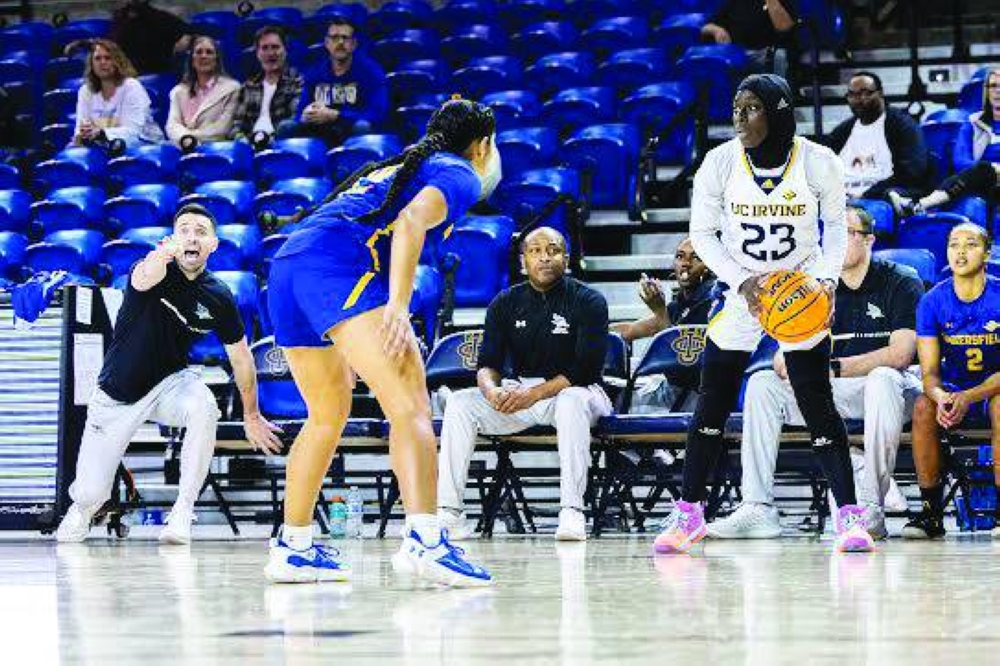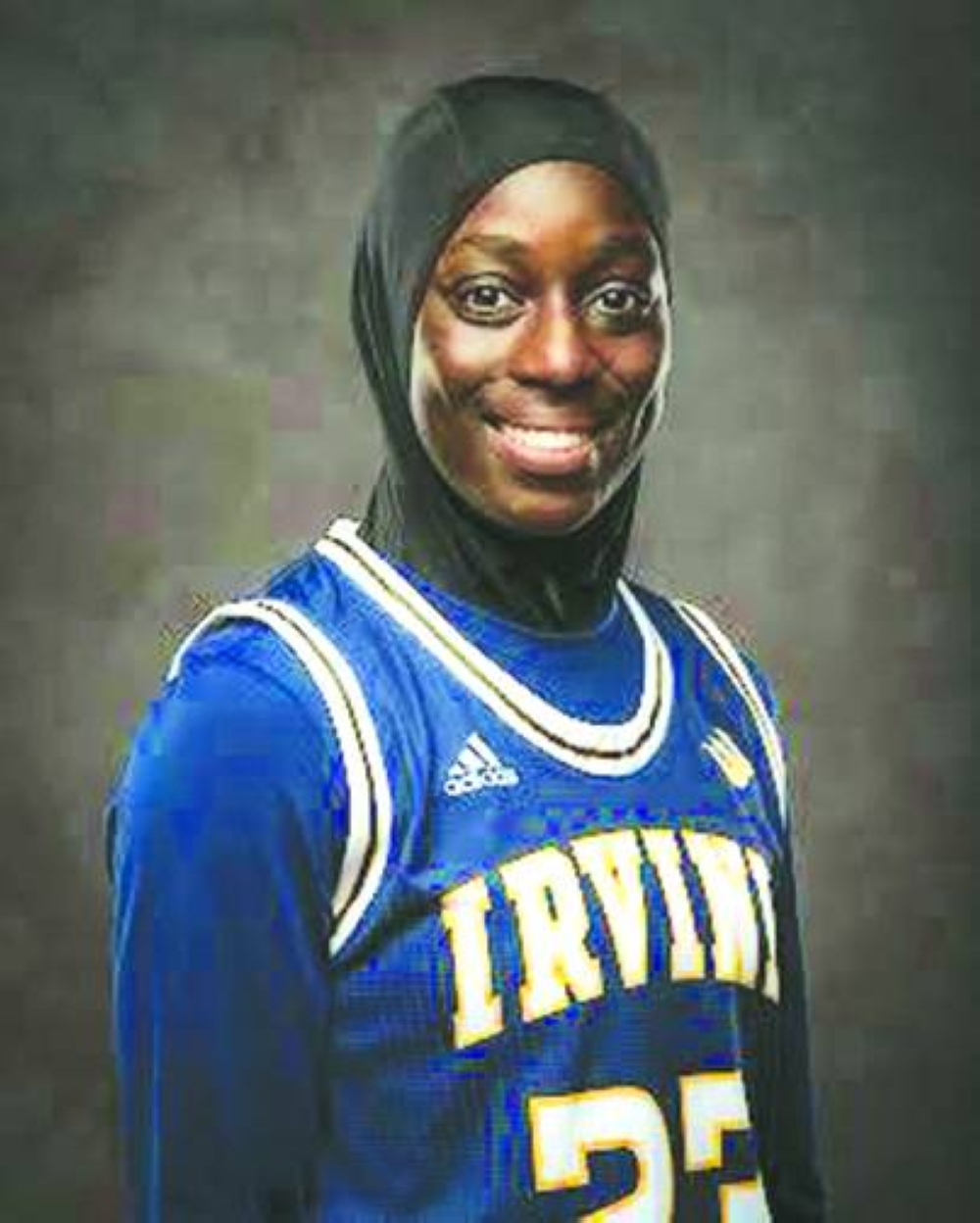The separation of religion and the state is at the very heart of France. But with the Olympic Games taking place, is this hindering its very own people?
Gulf Times spoke to Diaba Konate, who is a basketball player from Paris who pursued her passion from Paris Basketball at the age of 18 to college basketball in the US, playing at Idaho State and UC Irvine, where she also earned a degree.
However, after choosing to wear the hijab in April 2021, Konate returned to France and faced discrimination because of the hijab ban in sports competitions.
“I’m unable to play on a team; now I am fighting this ban alongside Basket Pour Toutes, advocating for the right of all women to participate in sports, regardless of their beliefs and identity,” she said.
Konate tells us that her journey began in primary school: “I chose basketball and quickly developed a deep passion for it. Since then, I’ve been dedicated to the sport and have never looked back.”
Nonetheless, she discusses how a period of deep reflection and solitude during the Covid-19 pandemic increased her faith in her religion.
“Choosing to wear the hijab was a personal decision that represents my religious beliefs and commitment.
“It signifies modesty and a strong connection to my spirituality, and it has become a central aspect of who I am.
“Embracing the hijab has strengthened my resolve and helped me face the challenges associated with it.”
The Olympic ban on French athletes wearing a hijab deeply upsets Konate.
“It feels like a denial of the right to fully participate in sports while honouring one’s beliefs.
“This restriction not only limits opportunities for athletes like me but also contradicts the values of acceptance and respect that sports should promote.”
On how this ban stops Konate from playing for the French national team and whether she feels punished.
She says: “As a result of this ban, I’m excluded from participating in competitions where I would otherwise be eligible.
“It does feel like a punishment, as it forces me to choose between my faith and my passion for basketball.
“This exclusion not only affects my career but also feels like a setback in the fight for inclusivity in athletics,” she says.
As this ban is only on French athletes, hijab-wearing athletes from around the world are getting the opportunity to represent their countries.
For Konate, “seeing athletes in hijabs competing at the Olympics is both motivating and bittersweet.
“It’s inspiring to see their achievements and representation, but it also highlights the barriers I face due to the ban in France.”
The hijab for Konate is not a threat to sports, nor should it stop anyone from participating and doing something they have a passion for.
“The hijab for me is a personal choice that reflects my faith and identity, and it should be respected just like any other aspect of an athlete’s appearance or beliefs.
“Excluding athletes based on their religious attire not only limits opportunities but also goes against the principles of inclusivity and respect in sports.”
We asked her about secularism in France and whether she feels it could be working against its people.
“This approach creates obstacles for people who want to express their faith while engaging in public activities, including sports.
“Instead of fostering integration, it can lead to exclusion and hinder full participation, which undermines the principle of equal access for all,” expresses Konate.
Clearly, the Olympic games have just highlighted the division in French society.
Therefore, being a female in France under such laws presents significant challenges for Konate.
“For me, the hijab ban directly affects my ability to play basketball and participate fully in public life while remaining true to my faith.
“These restrictions create barriers and contribute to feelings of exclusion, making it hard to pursue my passions and opportunities.”
It is clear that Konate’s skills are not the issue but that she wears a hijab.
On Konate’s dream and what keeps her motivated to continue this journey, she said:
“My dream is to ensure that all athletes, regardless of their faith or identity, have the chance to compete and succeed.
“Believing that I’ve been given this platform for a reason motivates me to persevere despite the obstacles.”
Konate’s message to Muslim girls is merely “keeping your identity and pursuing your passion with confidence.
“Even when facing challenges or obstacles, remember that your faith and values are strengths, not barriers.
“You have the right to follow your dreams and participate fully in all aspects of life, including sports.”
Finally, Konate’s message to the French government.
“I just think it is very crucial to recognise that policies like the hijab ban are unjust and discriminatory.
“No one should be excluded or face barriers, especially in sports.
“Embracing diversity and ensuring equal opportunities for everyone is essential and should be a fundamental right.”

Diaba Konate in action (picture: Mollie McClure @McClureImages)

Diaba Konate (picture: Amanda Kaye Delgado @under.ratedmedia)

Dima-Thalia Rizk
